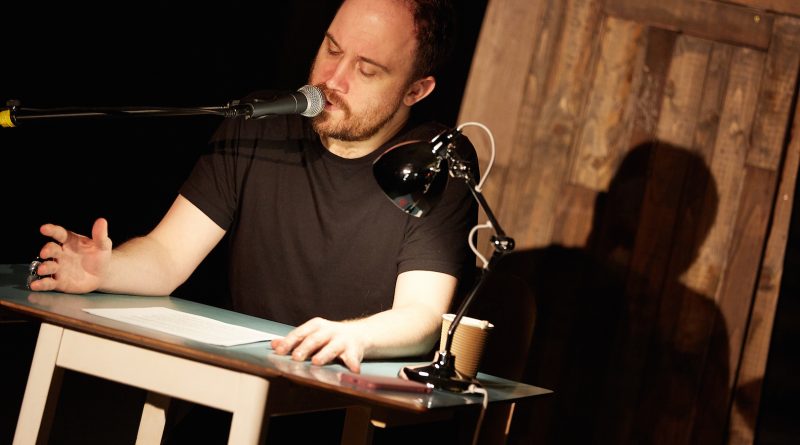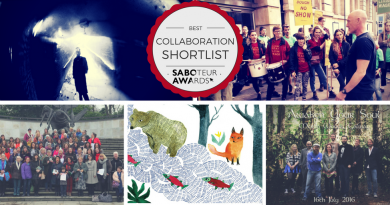Yellowstone by Chris Thorpe (Are We Where We Are? Shop Front Theatre, Coventry, 25 Jan 2018)
reviewed by Stella Backhouse
A few years ago, we discovered tipping point. Or at least, concerned media types in search of a punchy visual metaphor discovered it. You could barely turn on any media channel without hearing someone sternly assert – usually in the context of environmental or climate science, but also when discussing the rise of nationalistic politics – that we were now very close to ‘tipping point’, when everything would be turned upside down.
Thankfully Yellowstone, Chris Thorpe’s (almost) monologue premiered as number five in Shopfront Theatre Coventry’s Are We Where We Are series, steers clear of any mention of tipping point. But from its opening sentence:
I was coming home when all the lights went out
it deliberately positions itself on the queasy tightrope that separates safety from disaster and asks whether signs that we are falling off it might not be as obvious as we’d suppose.
Thorpe’s narrative develops into what could perhaps be termed a ‘standard’ post-apocalyptic scenario: the train on which he is travelling comes to a halt at a ruined way station and never re-starts; the driver runs away; left to their own devices, a motley collection of stranded passengers loot what remain of the station fittings, then decide to strike out northwards. Preparing to leave, they notice through a shattered window that the nearby village is consumed in flames.
Punctuating the narrative is a persistent second voice (supplied by Chris O’Connell). It’s unclear whether this is meant to be Thorpe’s drinking buddy, puncturing his artistic pretensions with the blunt instrument of bloke-ish rationalisation (“If [the narrator]’s anything like you, he just isn’t that proactive!”) or an unsated part of Thorpe’s own mind, patiently wearing him down with its querulous, nagging critique. Either way, the effect on the audience is disorientating – forcing us to question how many removes we really are from these fictional events.
Fast forward a few years. The narrative has swtiched from first to third person. The writer is now (for unexplained reasons) visiting the volcanic landscape of Yellowstone National Park in the USA, where the metaphor of uneasy balance is transformed into vertiginous physical reality.
The earth’s crust is unusually thin here, and the presence of a huge subterranean reservoir of magma (which will, at some point, erupt) gives rise to uncompromising and uniquely dangerous natural phenomena such as boiling springs and acid lakes. To avoid toppling into them and meeting with rapid and unpleasant demise, tourists are obliged to pick a zig-zag course along man-made boardwalks. For one terrifying moment, they are additionally confronted with a Yellowstone bison, cutting off their exit. Finally,
fixes them with a pre-historic eye, snorts and wanders away.
Walking back to his car, the writer gets halfway there and (in an echo of the train scenario from the first section) stops.
The ground beneath his feet feels weirdly fragile. He can feel warmth through the soles of his boots, constant heat, something he’s sinking into – or is it rising up around him?…Everything seems poised to blow up; everything seems exactly the same.
With its themes of uncertainty, insecurity and the unstable foundations of modern life, this unsettling piece taps into universal human fears (“every playwright I know has written a post-apocalypse piece,” said Thorpe in the post-show Q and A) about how little we really know about this world of ours, how little we can control it, and how little it cares about us.
But perhaps it’s also more than that. “He’s not like me,” Thorpe moodily replies to his alter ego’s quip about the differences between himself and his protagonist. So who then, is he like? Is he Thorpe, or is he not? Who is he? Where does he end? Where does Thorpe begin?
Each of us is, inevitably, facing our own personal apocalypse, with no way of knowing when we have passed the noonday and commenced the descent into darkness. Yellowstone is a reminder that, before night falls, every one of us will need to ask ourself if we are where we are.
Image by Andrew Moore





